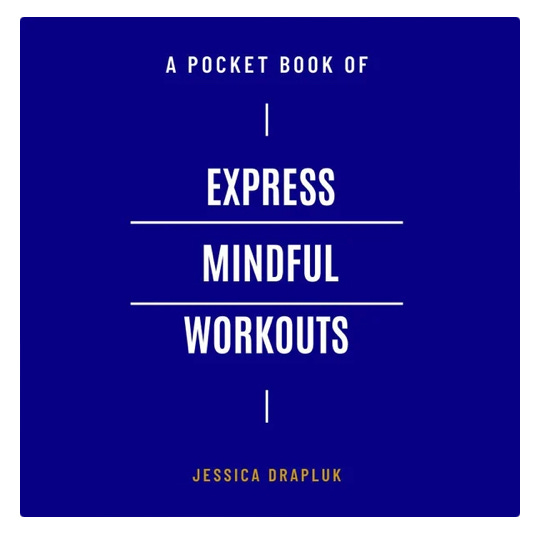The Secret to Beating Hedonic Adaptation: Transform Your Health Habits Forever
Mindset shifts and simple routines to keep the fire alive.
“Mediocrity knows nothing higher than itself, but talent instantly recognizes genius.”
Have you ever wondered why your enthusiasm for healthy habits fades over time?
You start a new workout routine, change your diet, commit to meditation, or even try journaling every night.
For the first week or two, you're fired up.
You feel amazing, optimistic, even unstoppable, but then—something shifts.
That morning yoga session feels tedious. The salad you used to love is now boring.
Motivation fades, and old habits creep back in.
This experience is so common that scientists have studied it extensively. The culprit?
A psychological phenomenon called hedonic adaptation.
In this article, we’ll dig into what hedonic adaptation is, how it sabotages your wellness goals, and how you can build lasting health habits that stick even when the initial thrill fades.
What is Hedonic Adaptation?
Hedonic adaptation is your brain's tendency to return to a stable level of happiness, even after major positive or negative changes.
The excitement of a new car, a new home, or even a romantic relationship fades as your mind adjusts to the new normal.
It’s not that you’re ungrateful—it’s that your brain is wired for equilibrium.
In the context of health and wellness, hedonic adaptation shows up like this:
You start eating clean and feel energized—but within weeks, that same diet feels restrictive or old.
You buy new fitness gear and hit the gym—but the motivation doesn’t last.
You begin meditating daily and feel more peaceful—until it starts to feel like just another task.
The pattern is rooted in neuroplasticity: your brain literally gets used to pleasure and progress.
As new habits become routine, they no longer stimulate the same feel-good chemicals like dopamine and serotonin.
The new habits just don’t feel the same and the cravings for novelty or comfort start, which often pulls us back into old, familiar behaviors.
How Hedonic Adaptation Impacts Your Health Journey
This phenomenon silently erodes progress.
You don't notice it at first, but it shows up subtly in the form of:
Skipping “just one” workout.
Choosing convenience over consistency.
Telling yourself “I’ll get back on track Monday.”
The cycle usually looks like this:
Enthusiasm Stage: You adopt a new habit and feel excited and accomplished.
Normalization Stage: The novelty wears off, and the habit becomes mundane.
Relapse Stage: Without novelty or reward, you fall back into old patterns.
According to research from the University of Scranton, a staggering 92% of people fail to keep their New Year’s resolutions.
Most resolutions relate to health—exercise, nutrition, sleep—and most of them fail not because of laziness, but because of hedonic adaptation.
This relapse isn’t personal. It’s predictable and if you can predict it, you can plan around it.
Breaking the Cycle: How to Outsmart Hedonic Adaptation
To beat this built-in wiring, you need strategies that work with your brain, not against it.
Here’s how to maintain consistency when motivation fades:
1. Habit Stacking: Make It Automatic
This technique, popularized by James Clear in Atomic Habits, involves pairing a new habit with an existing one. For example:
“After I pour my coffee, I’ll write three things I’m grateful for.”
“After I brush my teeth at night, I’ll do 10 minutes of stretching.”
This technique leverages cue-based behavior—attaching the new action to something you're already doing, so it takes less mental energy to remember and repeat it.
2. Practice Mindfulness: Rediscover Meaning in The Moment
Often, habits lose their shine because we stop being present.
Instead of rushing through a morning walk while scrolling on your phone, try tuning in: notice your breath, your feet on the ground, the sky above.
Mindfulness reinforces your actions with intention.
When you engage fully with what you're doing, even the simplest rituals—drinking water, doing a plank, journaling—can feel sacred again.
3. Introduce Micro-Novelty: Keep It Fresh
Your brain craves variety.
Adding small twists to your routine can make a big difference:
Change your workout playlist.
Try a new healthy recipe each week.
Switch from walking outside to hiking on a nature trail.
Try a different flavor of tea for your nightly wind-down.
Small variations activate dopamine pathways and help delay the adaptation response.
4. Track Your Progress Visually: Fuel Your Reward System
Tracking isn't just about accountability—it’s about feedback.
Seeing a streak of checkmarks or watching your step count rise gives your brain a mini dopamine boost.
Consider using:
Habit-tracking apps
Habit-tracking log in a notebook
Printable wellness calendars
Sticky notes or whiteboards
Each visual cue reinforces that you're making progress—even when it feels monotonous.
Sustaining Motivation for Long-Term Success
True, lasting change isn’t built on fleeting bursts of inspiration. It’s built on systems, mindsets, and support structures.
Here’s how to build a foundation that lasts:
Shift from Outcome to Identity
Instead of setting goalposts like “I want to lose 10 pounds,” consider identity-based goals like:
“I’m a person who moves every day.”
“I take care of my mental and physical health.”
“I am being a healthy person.”
When your actions align with how you see yourself, habits become self-sustaining rather than willpower-dependent.
Build or Join a Supportive Community
Humans are social creatures. We thrive on connection, accountability, and shared progress.
Whether it’s a walking buddy, a group fitness class, an online trading community, a digital wellness group, or even a friend you text your progress to—community matters.
Studies show that having a support system doubles your likelihood of achieving long-term goals.
Revisit Your “Why” Often
Write down your reasons for wanting to stay healthy.
Is it to be there for your family? To feel confident in your body? To manage anxiety without medication?
Return to this why regularly—especially when you're tempted to give up. This anchors you in purpose when the pleasure fades.
Final Thoughts
Hedonic adaptation is predictable, so be aware.
Knowing that your brain will normalize your efforts means you can plan ahead with intention.
Instead of seeing the dip in motivation as failure, you’ll recognize it as a natural signal to adjust your approach, re-engage with your purpose, and refresh your habits.
Your job isn’t to always feel excited—it’s to create a system that works even when excitement fades.
To help you get started, here are a few quick actions you can take today:
Pick a Habit Stack to Implement:
After I pour my morning coffee, I will write down one health intention for the day.
After I brush my teeth at night, I will do one minute of deep breathing or gratitude reflection.
After I check my phone in the morning, I will take 10 slow breaths before opening any apps.
These are small, manageable, and powerful ways to anchor new habits into your existing routine.
Use a Journaling Prompt to Reignite Meaning:
When was the last time I felt truly motivated and excited about my health? What made it feel meaningful—and how can I reconnect with that feeling today?
What’s one small habit that used to energize me but now feels routine? How can I reintroduce excitement or meaning into it?
What would my healthiest, happiest self do today? What choices would they make—and what’s one I can make right now?
Reflection sparks awareness. Awareness drives change.
Pick one strategy from this article and put it into action today:
Create a habit stack.
Start a visual habit tracker.
Join a wellness group or text a friend your goals.
Try one small twist to re-energize your favorite healthy habit.
And if this helped you, share it with a friend. You never know who needs to hear this today.
Thank you for reading this article.
Music Recommendations
Recent Articles👩⚕️✍️
Spring Detox for The Mind: How To Cleanse Your Nervous System and Start Fresh
“You’re the greatest project you’ll ever work on. Restart. Reset. Refocus. As many times as you need.”
The #1 Thing You Can Do to Improve Your Mental Health Today
“Whatever we plant in our subsconscious mind and nourish with repetition and emotion will one day become a reality.”
The #1 Thing Holding You Back From A Positive Mindset
“Whatever we plant in our subsconscious mind and nourish with repetition and emotion will one day become a reality.”
Looking for Quick, Mindful Workouts to Elevate Your Fitness Routine? 👇⏰💪
Check out my ebook, A Pocket Book of Express Mindful Workouts, designed to help you seamlessly integrate daily movement into your modern life.
This ebook features 20 express, mindful workouts, each just 17 minutes long, making it easy to stay active wherever you are—whether at home, in a hotel, or even outdoors.
An Express Mindful Workout combines physical movement with mindfulness, focusing on maintaining proper form and controlled breathing.
These quick routines will test your mental toughness, improve cardiovascular fitness, and build muscle strength, all while helping you develop a consistent daily workout practice.
Best of all, you can download the ebook instantly and carry it with you wherever you go.
So, no matter how busy your schedule, you’ll always have time to get moving!!
Grab your copy today and start building the foundation for your optimal health! CLICK HERE!!
Manifest Your Mornings with The Perfect Sunrise 🌅✨
Every new day holds the energy of fresh beginnings.🌅🌆
My exclusive collection of sunrise photos captures the tranquil magic of the morning sun and tropical shores at dawn—ideal for screen savers, digital vision boards, social media posts, and more.🏝️🌊
Elevate Your Environment & Attract Positivity with Every Sunrise.📲🌅
A pack of 10 high-resolution digital photo downloads.
Stunning, beautiful screen savers & wallpapers.
Perfect for Law of Attraction & manifestation rituals.
Instant access for social media & creative, digital projects.
Instant download, endless inspiration—immerse yourself in the warmth of paradise today!!🌅🏝️
Click here to gain access to my incredible sunrise photos packs.👈
MEDICAL DISCLAIMER
This content is for informational and educational purposes only. It is not intended to provide medical advice or to take the place of such advice or treatment from a personal physician. All readers/viewers of this content are advised to consult their doctors or qualified health professionals regarding specific health questions. All viewers of this content, especially those taking prescription or over-the-counter medications, should consult their physicians before beginning any nutrition, supplement or lifestyle program.














🔥🙇🏻♂️
Let’s go!!! I don’t do New Year’s resolutions because of hedonic adaptation. I had no clue that is what it was called. Thanks for the helpful ways to take action! I have been talking about habit staking with my brother the last month now! Awesome write up Jess!